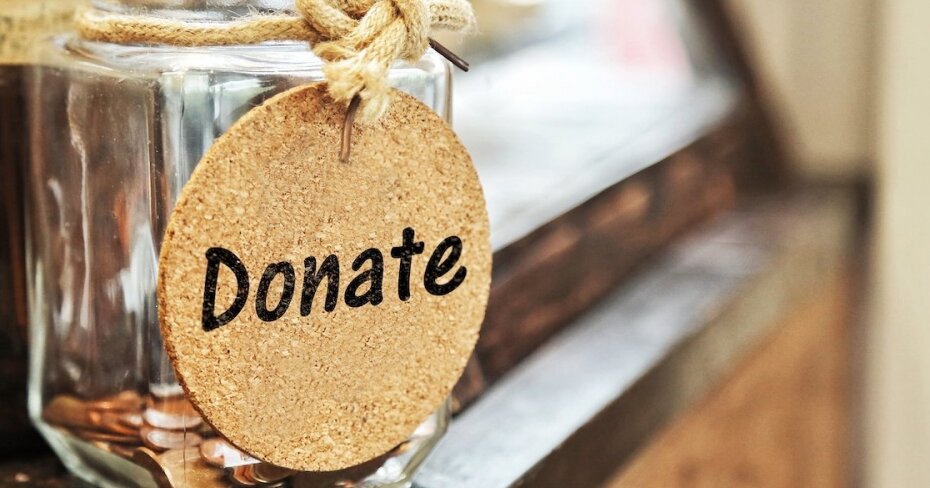Why giving away some of your money can make you happier
By: Lisa Coxon on November 8, 2019
Achieving personal finance bliss, where it feels like you’re doing the best and most with your money, can feel like an impossible feat.
We’re constantly bombarded by information that tells us what we should be doing with our finances. Save, don’t spend. Open this account. Apply for that credit card. Invest in this stock. The list goes on.
The truth is, you can do what all the experts tell you to do and still not feel like you’re doing the right things with your money. That can leave you feeling dissatisfied, unhappy, and unfulfilled.
So, here’s a thought: instead of obsessing about what you can make your money do for you, what if you focused on what it can do for another person?
Charitable spending — either spending on other people or donating to a charity — has been shown to have surprisingly positive effects on the psyche. It can make people feel happier and even feel more wealthy.
Could it be the missing piece of the personal finance puzzle?
Spending on others creates long-term happiness
Spending money on ourselves is, without a doubt, a happiness booster. Ever treat yourself to an indulgent hour-long facial? Or return home from the mall with a week’s worth of brand new outfits? Feels pretty damn good.
The trouble is, that happiness is short-lived.
“Spending on ourselves, and in particular buying stuff for ourselves, does not lead to any additional happiness,” says Michael Norton, a social science researcher and co-author of the book Happy Money: The Science of Happier Spending. “New shoes, cars, and houses feel good to buy in the moment, but that happiness fades very quickly.”
But when we spend our money on other people, that happiness lasts.
“Spending on other people, such as giving gifts or donating to charity, seems to not only produce short-term happiness boosts, but is also associated with greater well-being in the longer term,” says Norton. “In other words, giving makes us happier in part because it lasts longer.”
In fact, there’s a neurological link between spending money on other people and feeling happier.
There are two parts of the brain that are engaged when people feel happiness (called the striatum) and commit acts of generosity (called the temporo-parietal junction, or “TPJ”).
Giving makes us happier in part because it lasts longer
In a 2016 study published in the journal Nature Communications, researchers gave two groups of people (one control, one experimental) 25 swiss francs, or roughly $33 CAD each, every week for four weeks. Those in the experimental group were instructed to spend their money down to zero each week on a gift for a friend, whereas those in the control group were instructed to spend the money on themselves.
What the researchers found was that the connection between the TPJ and the striatum was enhanced in the brains of those who’d spent the money on a friend. They also reported increased feelings of happiness.
“The communication between these two regions was increased in people who committed to give,” says Philippe Tobler, one of the researchers behind the study, and a professor of neuroscience at the University of Zurich in Switzerland. “Compared to people who committed to spend money on themselves.”
Spending on others makes us feel wealthier
Even though it can make us happier, spending money on other people or donating it to charity might not be that enticing because it means parting with some of your own wealth. And if you don’t have that much to begin with, giving it away can seem like a silly idea.
Donating money to charity has tangible financial benefits. It can make us objectively wealthier in the form of tax deductions. But the other cool thing about spending money on other people is that it actually has the power to make us feel richer, too.
That might seem like an oxymoron. How could giving your money away make you feel like you have more of it?
In objective terms, you are less rich. But in subjective terms you feel better
Well, in Norton’s research, which was conducted alongside Elizabeth Dunn, a professor of psychology at the University of British Columbia, the pair found that donating your money gives you the feeling like you actually have enough money to give away. Norton and Dunn also found that regardless of people’s income level, those who donated to charity reported feeling wealthier.
“In objective terms, you are less rich,” says Tobler. “But in subjective terms you feel better.”
Generosity begets generosity
Spending money on others can actually make people behave more generously, too.
Once the two groups in Tobler’s study had spent their money over the course of the four weeks, he and his co-researchers presented the groups with various scenarios in which they could spend money in order to benefit someone else or keep the money for themselves.
“The proportion of generous decisions increased when people were in this commitment condition,” says Tobler. “When they had committed to spend the money, the communication between these two areas of the brain increased, and the generosity increased as well.”
It doesn’t matter how much money you’re giving away, either. Rather, says Norton, it’s “the percentage of what we have that we give that matters.”
“So, giving $1,000 to charity when your income is $50,000 results in similar happiness as giving $10,000 when your income is $500,000. What seems more important is that we give,” says Norton, “not how much we give.”
Tobler and co. found the same to be true in their study: the amount of money spent on others didn’t matter. Participants reported increased happiness regardless of the dollar amount.
So, if you’re not sure how to make the most of your money, maybe consider giving some of it away. You might wind up happier and more fulfilled in the end.


